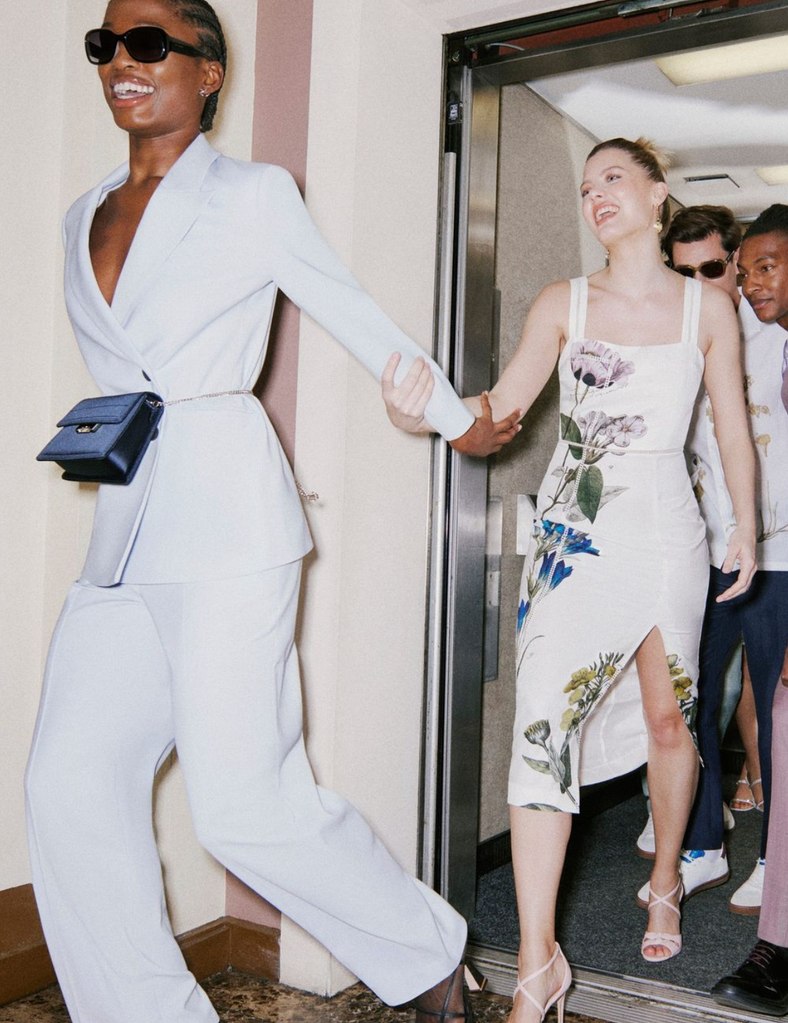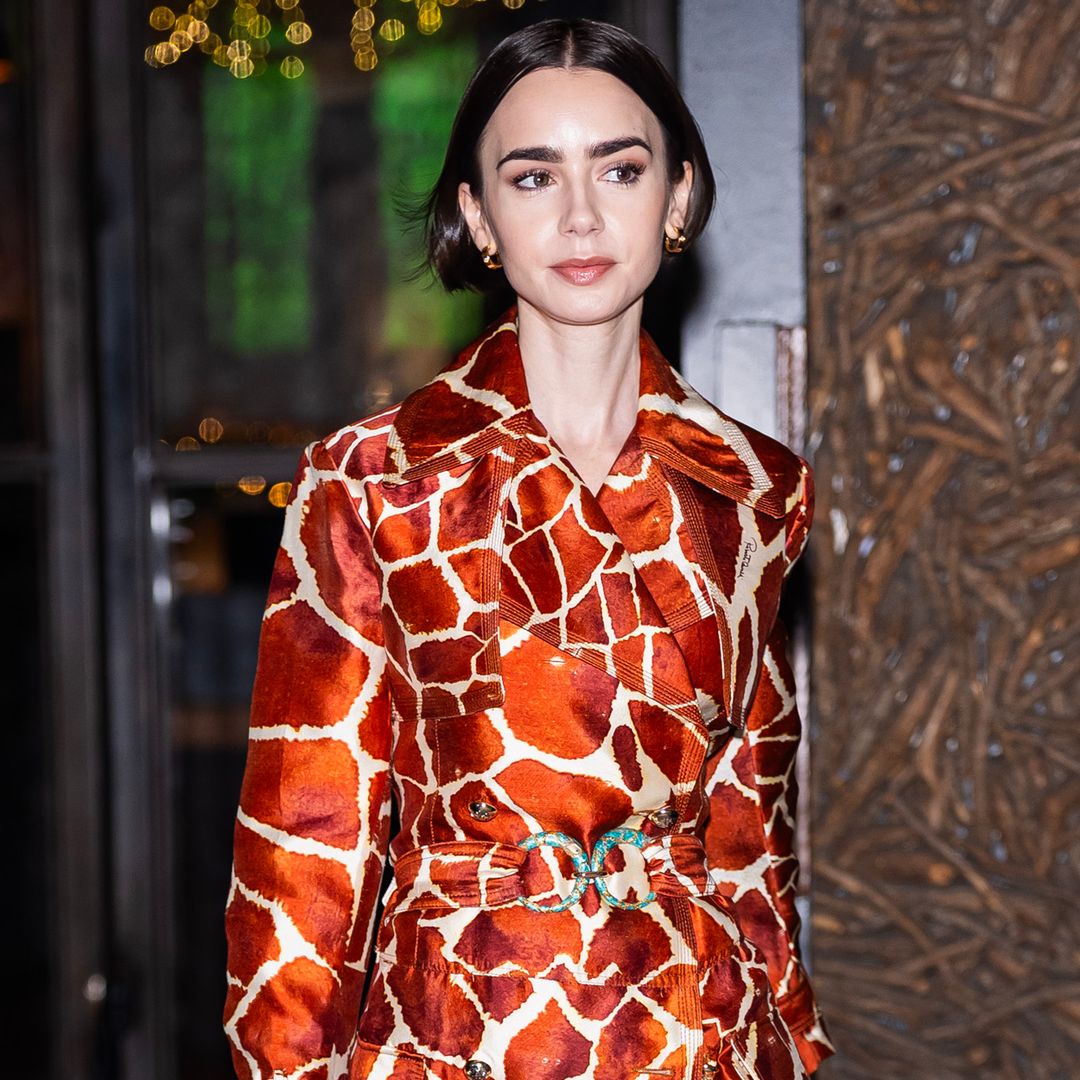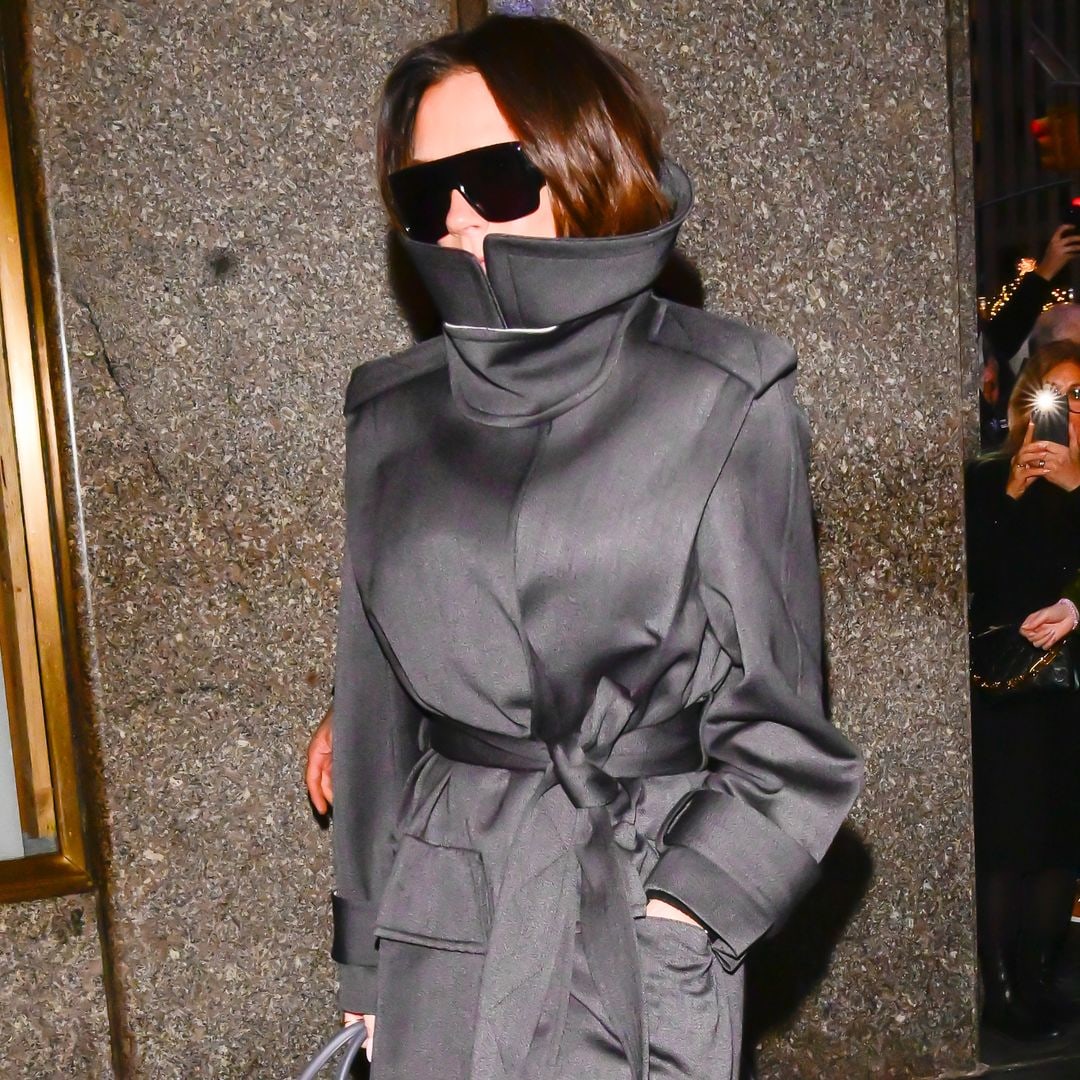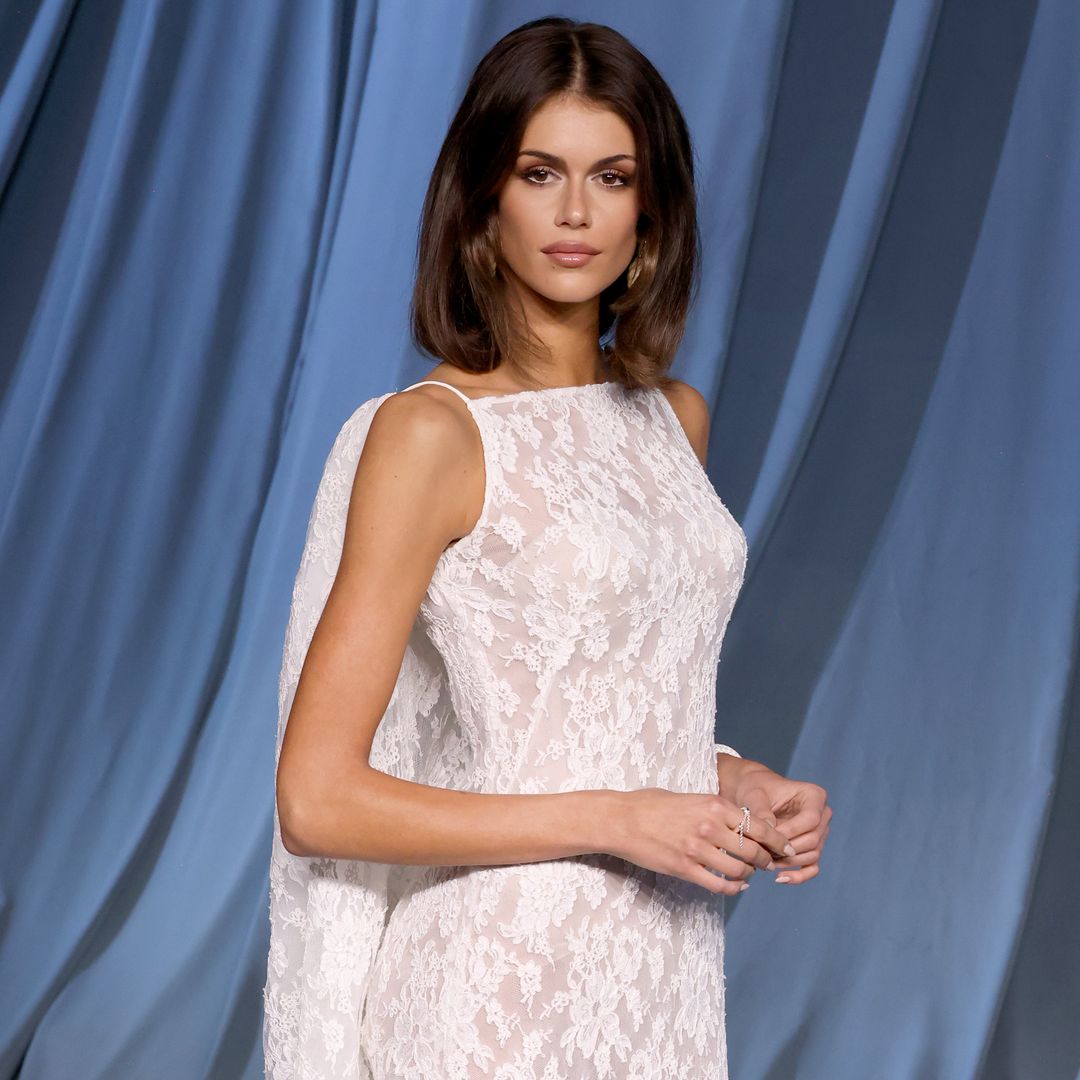And just like that, another British high street hero bites the dust.
On Monday, it was announced that the final 31 Ted Baker stores in the UK and Republic of Ireland are to close this week, putting more than 500 jobs at risk.
The news felt particularly close to home for those who remember the British brand as a floral emporium of Ascot attire and wedding guest dresses. Pastel hues from sage to lilac, lemon yellow and baby blue adorned Ted Baker garments en masse, dotted with gold hardware and pencil skirt silhouettes that took the wearer from christening to cosmopolitan in hand at the office party.
The history of Ted Baker
Founded in 1988 by Ray Kelvin, Ted Baker initially focused on men’s shirts. The Glasgow-based brand quickly gained a reputation for its high-quality products combined with a British touch, offering laundry service with every shirt purchase which set it apart from fellow labels.
The 1990s was a period of great expansion for Ted Baker. After initial success, the brand expanded to London, opening stores in Covent Garden and Soho. With this, the brand began to broaden its product range, introducing menswear beyond shirts and eventually launching womenswear in 1995.
Kelvin’s sartorial brainchild became known for its ‘no advertising’ policy, relying on word-of-mouth and unconventional marketing tactics to build its reputation.
MORE: The 38 most expensive looking pieces on the high street this week
RELATED: 10 stylish linen dresses to pack for a summer getaway
The brand reached its peak in the early 2010s, with strong sales, a new e-commerce presence and an expanding global footprint. The decade prior, Ted Baker had started expanding internationally, opening stores in the USA, the Middle East and Asia.
Why did Ted Baker fall into administration?
A handful of factors lead to the brand’s downfall. In 2018, founder Ray Kelvin faced allegations of inappropriate behaviour, leading to his resignation in 2019. This was a big blow to the brand’s image and leadership.
The brand also faced financial challenges, exacerbated by the COVID-19 pandemic, which led to store closures and a decline in sales. Before it fell into administration, Ted Baker had approximately 975 employees in the UK and ran 46 shops in addition to an e-commerce platform and concession stores. By the end of this week, none will remain.
A glimmer of hope came in 2022, when Ted Baker was acquired by Authentic Brands Group (ABG), an American brand management company. Yet, it was not to be, as despite ABG working on the brand’s image, it proved to be a sinking ship.
What is Ted Baker’s legacy?
Ted Baker is known for its distinctive blend of British sophistication and playful prints across both menswear and womenswear. A high street hero for many years, the brand was considered quintessentially British - a reliable source of inspiration for days spent at the races, weddings, senior school proms and everything in between.
It’s no secret that the fashion industry is struggling. Print papers are folding left, right and centre - as are brands. The collapse of the Arcadia Group, which owned Topshop, marked a significant shift in British fashion. With fast fashion churning out uber-cheap garments coupled with a cost of living crisis, mid-range brands are losing their footing in the fashionscape.
Gen Z may be rebelling by sourcing their clothes via Vinted and Depop, but the future of high street continues to remain on rocky terrain. Ted Baker's demise is a sharp reminder of this.
MORE: You can now ask Chat GPT to roast your Instagram feed - so we did
RELATED: H! Fashion Loves: The chicest new-ins you need to know about right now
Ted Baker's journey reflects the highs and lows of the fickle fashion industry. Like fellow Noughties brands such as Jane Norman and American Apparel, Ted Baker lost out to more relevant, contemporary labels. However, the house will always remain a relic of true British design. Saturated in florals intermixed with a touch of kitsch colour and English charm while nodding to a time when Blockbuster was king and Chat GPT was a dystopian pipedream. Gone, but never forgotten.











